By Jake Howell jake.howell@utoronto.ca
Predicting Cannes
For the last three years I’ve tried to take an educated guess at which of the usual suspects Cannes would be court for their annual Competition. In 2013 and 2014, my festival math worked out. Over the past decade, more or less 75% of the films annually vying for the Palme d’Or were by returning auteurs. To get a read on what the Festival would look like was simply a matter of rounding up a list of active Cannes veterans and seeing if their latest opus was ready for a May premiere.
But this year I was wrong. I wrote we’d have three or four newcomers. But by programming a Competition with nine (!) newcomers, the Festival dramatically switched it up, and I couldn’t be happier. It’s happened before, but take note when a Palme d’Or winner (ahem, Apitchatpong Weerasethakul) is programmed (relegated?) to sidebars like Un Certain Regard, a move which Festival director Thierry Frémaux commented on in an interview: “Je veux bien parler du film d’Apichatpong Weerasethakul avec vous, mais seulement quand vous l’aurez vu.” (Roughly translated: “I’m willing to talk about the movie with you, but only when you’ve seen it.”)
There are several ways to interpret that, but I’d like to think that this year they’re giving Palme potential to filmmakers that aren’t resting on their laurels.
Veterans are fun, but new blood is good. So let’s get acquainted!
Justin Kurzel
Australian-born Kurzel is bringing Macbeth to the Croisette, a Michael Fassbender-Marion Cotillard-led drama based on Shakespeare’s infamous “Scottish Play.” Were I cynical, I’d say Kurzel’s inclusion in the Competition is more or less based on the cast’s red carpet attendance, but it’s possible that this 113-minute adaptation could even be good (The Weinstein Company has North American distribution rights). On his own, Kurzel is mostly known to Australian audiences for his 2011 thriller debut Snowtown, a film that saw some critical success in his home country, with a micro-release by IFC in the U.S. But Cannes has had this filmmaker on their radar since his short Bluetongue premiered in 2005.
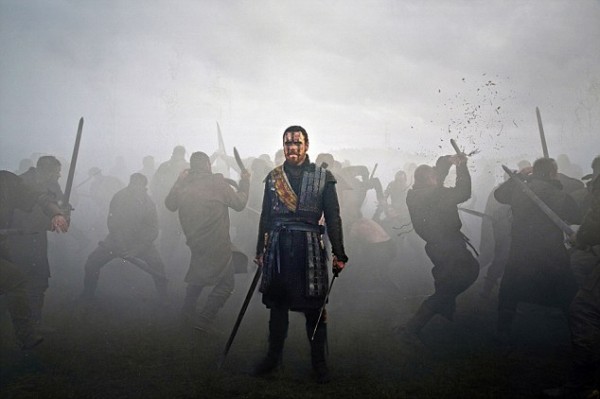
Joachim Trier
A critical favorite for his 2011 Un Certain Regard entry Oslo, 31 August, Trier is moving up to the Competition with Louder Than Bombs, a Jesse Eisenberg/Isaballe Huppert drama that’s co-written by Trier’s regular scribe, Eskil Vogt (who recently won a major screenwriting prize in Sundance last year for the excellent Blind). The film is Trier’s English-language debut, but he’ll likely transcend the language barrier through his excellent eye. Little is known about the plot.
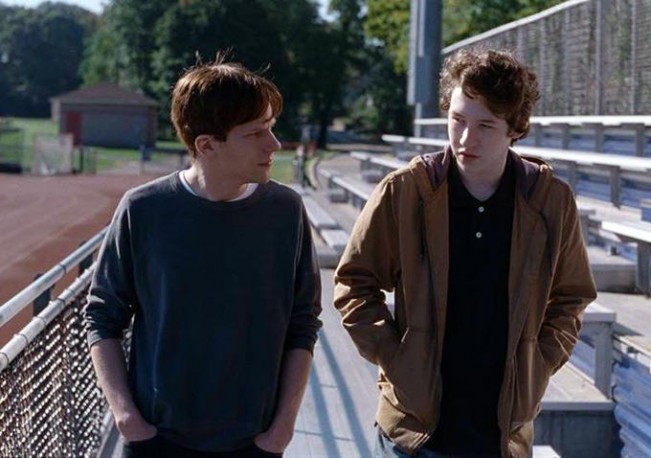
Valérie Donzelli
An actress as well as a director, Donzelli has a number of films on her resume, but her film Declaration of War (2011) is the most notable; the film starred herself and actor Jérémie Elkaïm, and was based on events between their personal life together. Elkaïm is back with Anaïs Demoustier (2014’s Bird People) for Donzelli’s Marguerite & Julien, a film originally penned by Oscar-nominated screenwriter Jean Gruault, which was reportedly in the hands of François Truffaut in the 1970s.
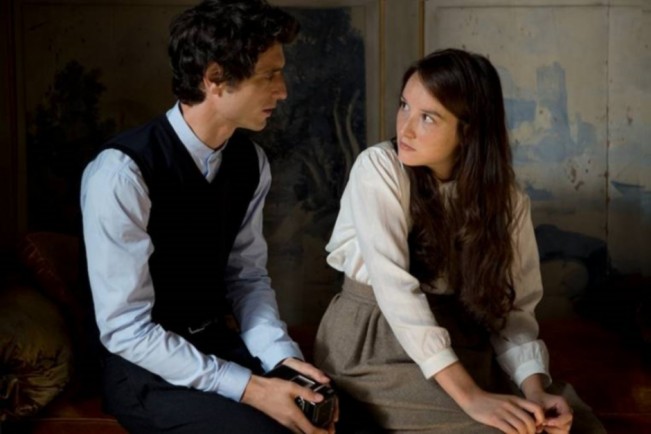
Michel Franco
Thank God it’s not James: Mexico’s Michel Franco is back at Cannes with Chronic, a film sure to be one of the Festival’s most-buzzed Competition entries. Known for high-quality work, Franco graduated from the Director’s Fortnight (2009, Daniel & Ana) and moved on to Un Certain Regard with the devastating After Lucia in 2012, winning the sidebar’s most prestigious award. Chronic stars Tim Roth (who really should be in everything), and has an IMDb summary that reads: “A home care nurse works with terminally ill patients.”

Stéphane Brizé
Most readers won’t be familiar with Brizé—I’m not—but his work screened in the Director’s Fortnight in 1999 (Le Bleu de Villes). In terms of the mandatory French representation in the Competition, Brizé holds a coveted spot, which may speak to the strength of A Simple Man (or The Measure of a Man), which stars French actor Vincent Lindon. This seems to be a breezier entry, or perhaps something that may be lost in translation (echoes of Alain Cavalier’s Pater in 2011).
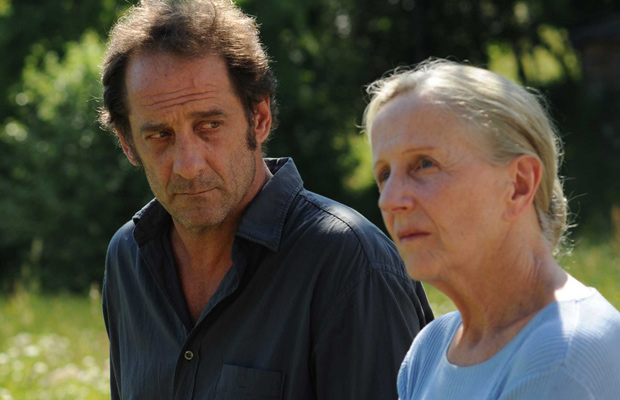
Laszlo Nemes
Ah, a true wild card! Nemes is known for short films recorded on actual celluloid, but Son of Saul is his debut feature, a project starring unknown Hungarian actors. The film’s IMDb summary has me supremely intrigued: “In the horror of 1944 Auschwitz, a prisoner forced to burn the corpses of his own people finds moral survival upon trying to salvage from the flames the body of a boy he takes for his son.” Filmmakers rarely enter the Competition with a first feature, so I’m paying full attention here.
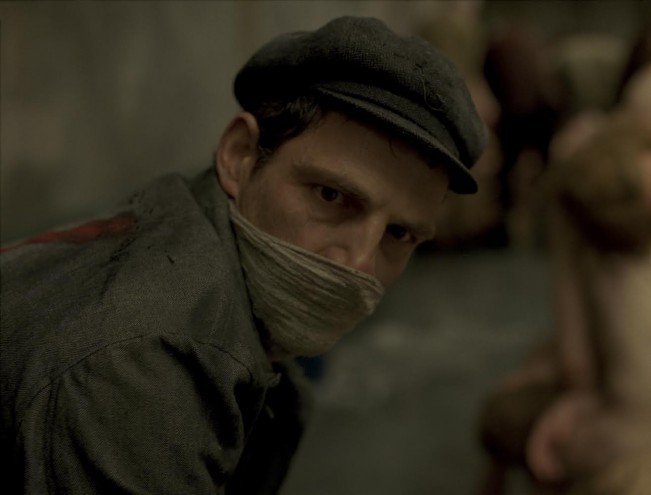
Guillaume Nicloux
The man is a multi-hyphenate, acting and writing novels in addition to directing. His most recent film, The Kidnapping of Michel Houellebecq, may be the entry point for anyone at Tribeca last year, where Nicloux picked up the Best Screenplay award. Valley of Love, his Cannes entry, features Gérard Depardieu and Isabelle Huppert on a sort of spirit-quest in Death Valley. It opens in France in June this year, so it may not be a Palme d’Or, but it sounds intriguing just the same.
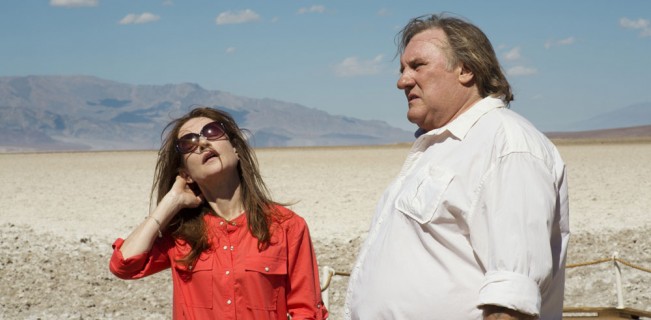
Denis Villeneuve
As MCN’s resident Canadian, allow me to represent for a second: Denis Villeneuve, at some point, will be the True North’s first Palme d’Or winner. It may not be this year—technically, 2015’s Sicario is an American production—but of late, Villeneuve has easily topped Canada’s list of name-brand directors, one or two of which seem to be losing steam rather than gaining it. Villeneuve is working at a rate that surely can’t be feasible (when does anyone release such disparate quality titles like Enemy and Prisoners both in the same year?) but hats off to this remarkable Québécois auteur. Sicario is hot, hot, hot: Roger Deakins behind the camera, Emily Blunt in the lead, and Benicio del Toro, Josh Brolin, and Jon Bernthal supporting her in this drug lord thriller. There is a reason he was granted the shot to direct the undirectable: a sequel to Blade Runner.
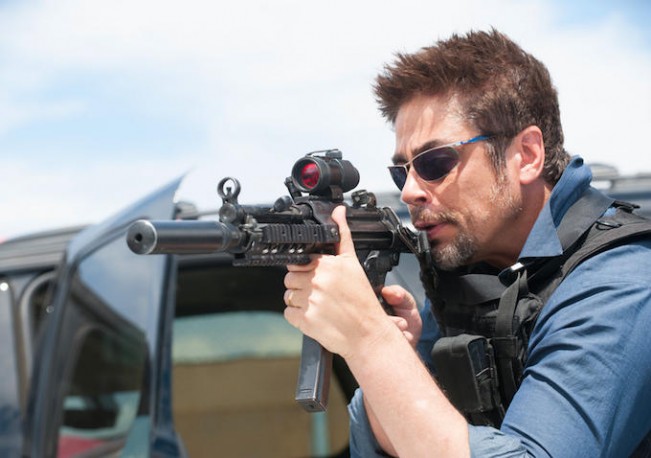
Yorgos Lanthimos
I’m surprised by how many people have seen Dogtooth. Maybe it was the Oscar run in 2010; maybe it’s because of just how uniquely weird it is. Word gets out, I guess. I don’t know. But like Michel Franco, Lanthimos is an Un Certain Regard winner, and The Lobster—his English-language debut—is definitely a heavy-hitter this year. It’s a sci-fi-rom-dram (?) where being romantically alone is “a matter of life and death,” which sounds appropriately crazy. With Colin Farrell, Rachel Weisz, and a handful of other names, there could be a potential third Palme d’Or for Greece in the wings. Otherwise, I’m just excited for something new and quirky.

Follow Jake Howell on Twitter: @Jake_Howell













